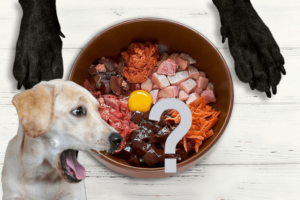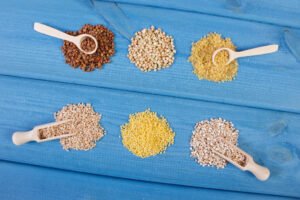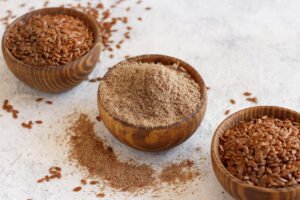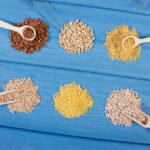In the vast world of canine nutrition, there’s a tiny powerhouse that’s been gaining popularity among dog owners and enthusiasts alike: chia seeds. These small, but mighty seeds are not just a trendy addition to human diets; they can also be a fantastic supplement for your furry friends. Let’s dive into the world of chia seeds and discover how this superfood can benefit your dog’s diet, ensuring a blend of practical advice, empathy, and well-researched information.
What Are Chia Seeds?
Chia seeds originate from the Salvia hispanica plant, native to central and southern Mexico. These tiny seeds have been a staple in diets for centuries, known for their remarkable nutritional profile and health benefits. Rich in omega-3 fatty acids, fiber, antioxidants, minerals, and vitamins, chia seeds are a natural superfood that can support overall health.
Nutritional Benefits for Dogs
Omega-3 Fatty Acids for Healthy Coats and Skin
One of the standout benefits of chia seeds is their high omega-3 fatty acid content, particularly alpha-linolenic acid (ALA). Omega-3s are essential for maintaining healthy skin and a shiny coat, reducing inflammation, and supporting cognitive function in dogs.
Fiber for Digestive Health
Chia seeds are an excellent source of fiber, which is beneficial for dogs’ digestive health. The fiber in chia seeds can help regulate bowel movements, prevent constipation, and aid in maintaining a healthy weight by promoting a feeling of fullness.
Antioxidants for Overall Well-being
The antioxidants present in chia seeds, including quercetin and kaempferol, play a crucial role in combating free radicals, reducing inflammation, and supporting overall well-being. These antioxidants can help protect your dog’s cells from damage and support a healthy immune system.
How to Incorporate Chia Seeds into Your Dog’s Diet
Before adding chia seeds to your dog’s diet, it’s essential to consult with your veterinarian, especially if your dog has specific health issues or dietary needs. Generally, chia seeds can be introduced gradually to avoid any digestive upset.
- Starting Small: Begin with a small amount, such as a quarter teaspoon per day for small dogs, and gradually increase to about a teaspoon for larger breeds.
- Soaked vs. Dry: Chia seeds can absorb a lot of water and swell, which can be beneficial for hydration but may also cause choking if not prepared correctly. It’s recommended to soak the seeds in water for about 15-30 minutes before adding them to your dog’s food.
- Creative Incorporation: You can mix chia seeds into your dog’s regular food, homemade treats, or special diets. They are versatile and can be added to both wet and dry foods without significantly altering the taste.
Safety and Considerations
While chia seeds are generally safe for dogs, it’s important to observe moderation. Excessive consumption can lead to gastrointestinal issues due to their high fiber content. Additionally, for dogs with specific health conditions, such as those prone to pancreatitis, consulting with a vet is crucial due to the seeds’ fat content.
Embracing Chia Seeds as Part of a Balanced Diet
Incorporating chia seeds into your dog’s diet can offer a variety of health benefits, from improved digestive health to a shinier coat. However, it’s essential to remember that chia seeds should complement a balanced diet tailored to your dog’s individual needs.
As with any dietary change, monitoring your dog’s reaction to chia seeds is key. Each dog is unique, and what works for one may not work for another. Observing how your dog responds will help you determine the optimal amount and frequency for incorporating this superfood into their diet.
In the journey toward optimal canine health, chia seeds represent just one piece of the puzzle. A balanced diet, regular exercise, and routine veterinary care are all critical components of maintaining your dog’s health and happiness. By considering superfoods like chia seeds as part of a comprehensive approach to nutrition, you’re taking a step forward in supporting your furry friend’s well-being.

























